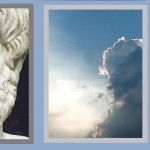Introduction to Part II The three pillars of Catholic social teaching, which springs from natural law and human nature, are human dignity, common good, and subsidiarity. Within societal structures with hierarchical poleis (e.g., federal, … [Read more...]
Happiness — A Thomistic Consideration (Part II)
Continued Reflections on Summa Theologiae I-II, Q 1–5
Happiness — A Thomistic Consideration (Part I)
A Reflection on Summa Theologiae I-II, Q 1–5
Introduction At some point in the life of every human person the great questions arise in their ponderings: “Where did I come from?” “Why am I here?” “Where am I going?” These questions encompass the ultimate question of our own mortality: … [Read more...]
Questions Answered
Question: A fine layman friend of mine was attending a class at a Catholic college taught by a priest who was insisting that Christ’s acquired knowledge was defective, citing Mk 2:26, when Our Lord cited that David ate the loaves of o … [Read more...]
The Hypostatic Union
The Hypostatic Union had a profound effect on Jesus’ human nature, as he is both true man and, also, God. Jesus is not a human person like us, but a divine Person. Holy Trinity by Hendrick Van Balen Jesus Christ of Nazareth is the foun … [Read more...]





Recent Comments